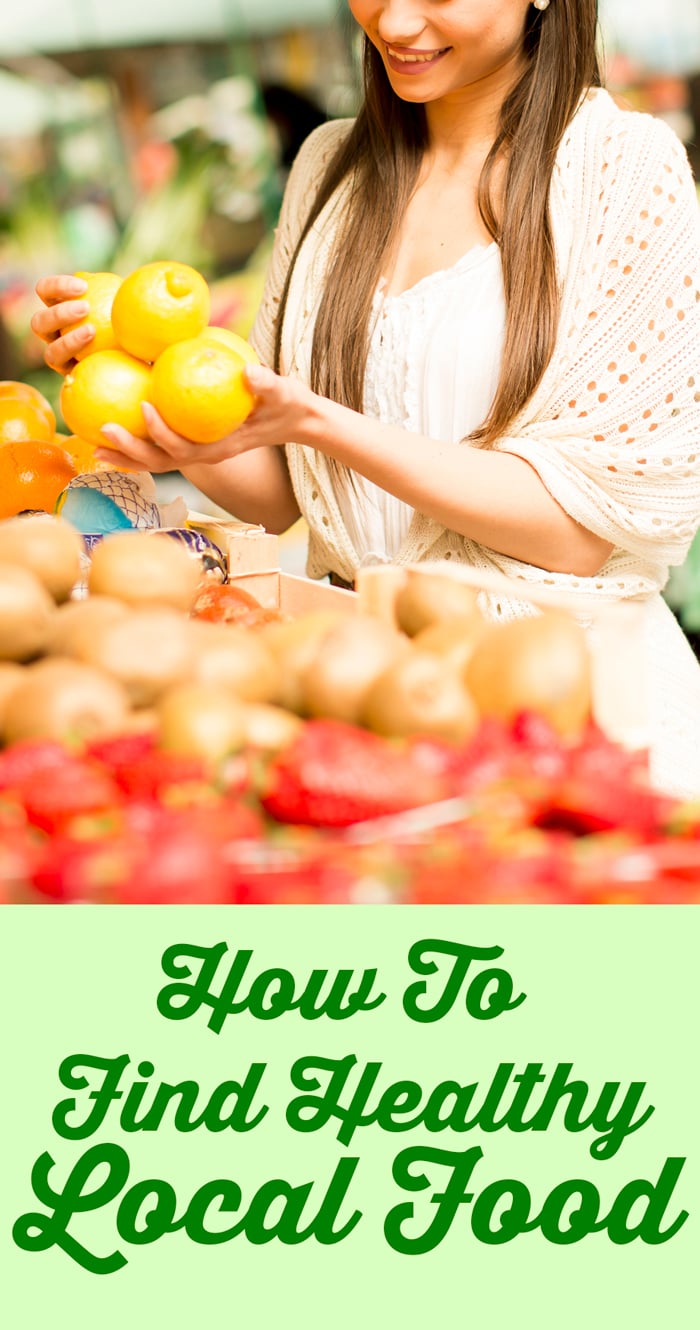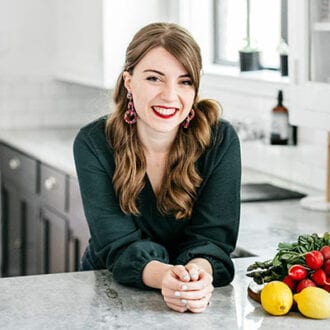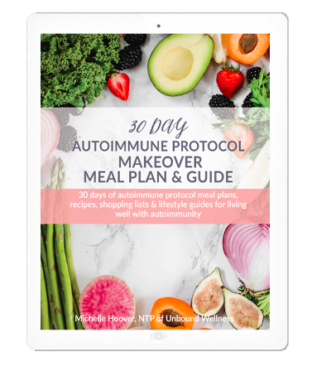How To Source Healthy Local Food & Why It Matters For Your Health (Plus My Favorite Local Food In Dallas)
I don’t know quite when it happened, but somewhere a long the way, I decided that I was going to become a complete local food junkie. I currently reside in Dallas, and haven’t ever been super into hometown pride in any other capacity, and I’m by no means a Dallas exclusive blogger. But when it comes to local food? Man… I’m obsessed. I’ve tried just about every farm store, vendor, and several co-ops and CSA’s in a 50 mile radius, and I’m on a first name basis with tons of local farmers. So why the heck do I even care? And how do you get your hands on good local food?
I want to start out by saying that the point of local food is not perfection. Your diet doesn’t have to be 100% local to experience the benefits by any means!
You’d be very hard pressed to even find folks who live on homesteads who are entirely self sustained these days! Convenience is great, and we should be able to take advantage of it here and there. It’s not about elitism, and it’s not about getting everything local. Maybe you just grow herbs on your balcony, maybe you get all of your eggs from a neighbor with hens, or maybe you have a local CSA you’re a part of. Whatever it is, every little bit counts! So why does it matter?
Why High Quality Local Food Matters For Your Health
If you’re anything like me and watch lots of Instagramers and read lots of blogs on a regular basis, you’ve come to find that stores like Trader Joes, Whole Foods, Natural Grocers, and the like are all highly recommended. It would seem that you just can’t eat healthy if you’re not shopping at Whole Foods. Though I love all of these stores as much as the next blogger, in reality, local is always best! Here’s why…
1.Local food = seasonal food which is huge for gut health, and health in general.
One of the absolute worst pieces of nutrition advice I hear is to eat the same meals and same foods all of the time. Though it may be convenient to have an apple every day, I couldn’t disagree with that notion more.
Our ancestors couldn’t eat an apple a day. They aren’t constantly in season. Grocery stores shipping in products for around the world trick us into thinking it’s available all year round. However, our bodies were not meant to eat the same foods every day. It doesn’t work with how the seasons naturally move and change, and eating the same foods every day is a common way to develop food intolerances.
Our bodies were meant to eat with the seasons, and our gut bacteria needs variety to feed on, and keep our microbiome diversity happy! Our gut bacteria eats what we eat, and feeding it the same food constantly doesn’t give it the diversity needed.
Eating seasonally is also part of natures important design for getting in a variety of different nutrients. Always eating apples as our main source of fruit limits us to just getting the nutrients in apples. However, when we eat apples in the fall, citrus in the winter, berries in the spring, and melon in summer, we’re getting a huge variety of nutrients that our body needs to thrive.
2. Local food is fresher.
Though it may seem fresh, shiny, and perfect on the shelf, food in the grocery store just isn’t as fresh. Especially when I’m living in Texas and see produce from Ecuador… I know that wasn’t picked in the last couple of days.
Local food travels much less distance, and can be much more fresh than Fresher food can be more flavorful, nutrient dense, and void of preservatives. I love getting local food that still has dirt on it!
3. Local food is more natural in general.
I’m not 100% perfect when it comes to eating local. Your girl still eats her fair share of cassava and plantains. But let’s be real… my Jewish, Polish, and Italian ancestors likely didn’t eat a lot of the foods that I have available at the grocery store. I can’t think of a single Jewish recipe that calls for plantain, and plantain doesn’t grow anywhere near me! Though it’s convenient to have this variety… its just not as natural.
Local food is how our ancestors ate and is just more natural in general. It’s how our bodies were meant to eat, and it’s really part of the core of paleo and ancestral living, in my personal opinion.
3. Grass-fed, and pasture raised really, really matters.
I cannot stress this enough. There is a huge different in organic meat from the store versus pasture raised, and grass-fed protein from a local farmer. “Organic” can mean that animals were simply fed organic grain rather than GMO. Which is a step up, yes, but cows and chickens still aren’t meant to eat grains. It makes them just as unhealthy as it can make us who can’t tolerate grains, which makes our meat unhealthy. So many folks think they’re soy free or corn free, but don’t account for the fact that they’re store bought chicken sausage may still be sourced from chickens who were fed soy.
The most healthful and humane way to raise animals is on pasture. Animals get more vitamin D, and more of a natural diet that they were meant to. It’s much harder to find meat you can trust from a store. I literally grill local farmers to learn about farming practices, and the difference in the meat shows. It tastes better, it sits better on my stomach, and it makes better quality bone broth and meals!
4. It’s more environmentally friendly.
Non pasture raised meat is incredibly terrible for the environment, yes, but so is flying mangoes from Chile to Chicago. Shipping food around the globe versus getting it from the down the street is not as environmentally friendly, and it’s certainly not as natural.
Again, no one is perfect at this… I eat my fair share of mango from the grocery store every now and then. But, the more local we eat, the easier we are on the environment!
How To Find Good Quality Local Food

One thing I want to get across with local food is that it’s closer than you think! So many people immediately write off local food as an option because they’re not immediately aware of options. It does take a bit of leg work to really find your favorites, but the process is so worth it!
1.Seek out a CSA, Co-op, Farm Store, or Farmers Market.
Local food comes in all shapes and sizes! You don’t need huge, bustling farmers market down the road to eat local. Here are just some ideas for what to look for when it comes to local food…
- Farmers Market. Yes, one of the easiest ways to shop local. Look for markets in unexpected places like church parking lots, libraries, schools, etc. They’re not always obvious!
- Farm store. Another convenient way to shop local, I’ve seen tons of farm stores that basically act as mini-farmers markets.
- CSA. This stands for community support agriculture, and is often characterized by having no central location, but drop off points for weekly boxes. Boxes often contain what’s fresh that week, and leave little room for customization. It’s a great way to get super fresh and local!
- Co-op. This stands for cooperative, and is often organized by a local community member who brings lots of local farms together to do a bulk drop off at their home/homes. This can be a great way to get a variety of local products in the convenience of your own backyard.
- Direct from a farm. Though I’ve never gotten the opportunity to do this too much myself, lots of areas have farms that either allow weekly pick ups on location, or will even deliver to your house! I used to buy from a beef farmers who would drop off our order once a month at our home, straight from the farm.
2. Look for underground local food movements.
Something that I discovered that really surprised me is that there are lots of CSA’s, meat shares, and farms that don’t really advertise anywhere other than social media. I’ve found tons of sources that just have a small group on Facebook with a home pick up once a month. It may seem modest, but I’ve used these small CSA’s as well and it’s worked great for me. Try and search “My town CSA” on Facebook to find groups, and you may be surprised at what you can find!
3. Use search engines.
Rather than just plain ol’ Google, I also use yelp and trip advisor to find farms I refer all of my clients to the Weston A Price Chapter search engine. The Weston A. Price foundation is all about traditional, local food, and they organize chapters all around the US of local vendors. This is how you can find tons of vendors that don’t necessarily advertise anywhere else.
4. Start a backyard or indoor garden.
And when all else fails, take it as local as possible… your own home! My husband and I just started a backyard garden and I’m loving going outside everyday to check on our little baby onion sprouts. It’s fairly cheap to get good quality dirt, and seeds, so I’m excited to see what results this yields.
If you don’t have a backyard, go for an indoor garden of fresh herbs! You can grow tons of amazing fresh herbs inside that are nutrient dense, and add so much flavor to your meals. All you need is one little rosemary plant on your windowsill to start eating local.
Bonus… My Favorite Local Food in Dallas
Since ya girl does indeed reside in Dallas, TX, I gotta give a shout out to my favorites! Y’all are life, y’all. (Can you tell I don’t actually say y’all in real life? 😛 )
Favorite meat providers:
- Juha Ranch – Where I get all of my bones for broth! Juha Ranch hands down has the best bones in town, amazing organ meats, and out of the world chuck roast. They sell at the Dallas Farmers Market regularly and a few others.
- Bois D’Arc Meat Co – The best eggs,chicken and pork shoulder in Dallas, y’all! Their beef is amazing as well. Tyler takes pride in his product, and it really shows in everything from their branding to their product.. They’re also super active on social media which makes them that much more transparent, trustworthy, and fun! I catch them at the Dallas Farmers Market.
Favorite Farmers Markets:
- Dallas Farmers Market – My absolute favorite with the most variety.
- Coppell Farmers Market – A good suburban second favorite.
Favorite Farm Store:
- Farm To Fork Foods – Owned and operated by a fellow NTP, Farm to Fork Foods in Arlington kills it with local food!
Favorite veggies:
- JBG Organic– JBG sells at markets in the area, and has a local CSA!







Pingback: The Ultimate List of Tools & Resources For Healing Your Gut - Unbound Wellness